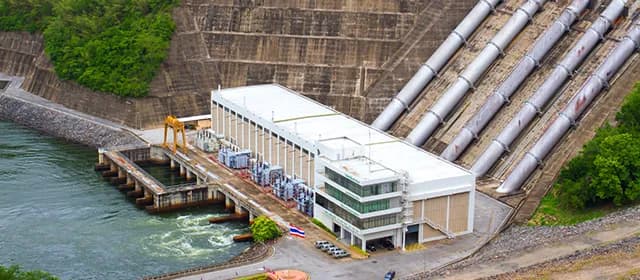Hydrogen is increasingly viewed as a cornerstone of decarbonization strategies worldwide. However, widespread hydrogen adoption depends critically on effective storage solutions. The latest developments in hydrogen storage reflect growing public‑policy support, rising demand for hydrogen, and intensified research into storage technologies. As hydrogen use expands in refining, industry, and prospective clean‑energy sectors, storage remains central to making hydrogen practical, scalable, and safe.
According to Kings Research, the global hydrogen storage market is projected to grow from USD 1,720.4 million in 2024 to USD 4,598.6 million by 2031, exhibiting a CAGR of 15.08% over the forecast period.
Rising Hydrogen Demand and the Pressure on Storage
Global hydrogen demand has reached historically high levels. According to the IEA’s 2023 analysis, global hydrogen use reached 95 million tonnes (Mt) in 2022. In 2023, demand grew further to 97 Mt, a 2.5% increase over 2022. The 2024 data suggest demand could approach 100 Mt, reflecting ongoing growth in industrial and refining sectors (Source: www.iea.org).
Most hydrogen consumption today remains concentrated in traditional use cases such as refining and chemicals. The limited growth in new hydrogen‑based applications (such as long-distance transport, power, or synthetic fuels) highlights that widespread hydrogen transition is still in early phases.
Simultaneously, governments around the world are intensifying support for clean hydrogen production, creating a dual pressure: supply-side expansion and the need for robust, scalable, and cost‑effective storage. For hydrogen to enable broad decarbonization in transport, industry, and energy storage, storage technology must keep pace with production.
Why Hydrogen Storage Is Technically Challenging
Hydrogen, despite its favorable gravimetric energy density, is difficult to store because of its low volumetric density under ambient conditions. Without compression, liquefaction, or other storage engineering, storing usable quantities is impractical. That creates a fundamental barrier to hydrogen's use as a fuel or energy carrier.
Moreover, achieving acceptable storage densities, safety, pressure containment, and efficient release all pose technical, material, and economic challenges. The need for engineered vessels, safe handling protocols, energy input for liquefaction or compression, and long‑term durability all affect system viability.
Recognizing these hurdles, the DOE includes hydrogen storage among its core research and demonstration priorities.
Existing Storage Targets and What They Mean
One benchmark for evaluating hydrogen storage systems comes from DOE’s “Technical Targets for Hydrogen Storage Systems for Material Handling Equipment.” For 2020, the target system volumetric capacity was 0.05 kg H₂ per liter (net useful energy per system volume).
These targets reflect a balance among storage density, system mass/volume, cost, and practicality. They provide a metric against which emerging storage technologies must be measured.
For light-duty fuel-cell vehicles, DOE’s onboard storage targets remain modest, reflecting the difficulty of meeting both energy density and safety criteria. These targets help frame why storage is still a bottleneck for wide hydrogen mobility adoption.
Thus, storage technology must improve significantly before hydrogen becomes mainstream in transport, grid storage, or industrial applications.
Storage Pathways under Development
Given the constraints, researchers and industry developers are exploring multiple pathways for hydrogen storage. Rather than relying on a single “silver bullet,” the strategy acknowledges that different applications will demand different storage solutions. The key pathways under active development or evaluation include:
Compressed‑gas storage. High-pressure tanks remain the baseline for mobile applications (vehicles, forklifts, small-scale usage). Despite material and manufacturing advances, these systems face limitations in volumetric efficiency, cost per kg stored, and safety requirements. These are under continuous improvement, but no publicly verified data yet confirms a breakthrough that meets all DOE targets at scale.
Liquid hydrogen storage. For industrial feedstock, heavy transport, and long-distance hydrogen transport, liquid hydrogen offers a higher volumetric density compared to gas. However, liquefaction energy costs, cryogenic temperature maintenance, boil-off loss management, and insulation remain major technical and economic challenges.
As of now, improvements in these areas remain under engineering development, and credible public datasets quantifying global performance improvements are limited.
Material‑based hydrogen storage. This pathway involves storing hydrogen in materials such as metal hydrides, complex hydrides, sorbents (e.g., MOFs), or advanced composites. These materials offer potential advantages like higher volumetric density at moderate pressures and safer solid‑state storage media.
DOE supports research into material-based storage technologies, particularly for stationary or small‑scale uses. However, publicly verified commercial systems that meet all cost, density, cycle life, and safety requirements remain elusive; most technology remains at the R&D or pilot stage.
Stationary and long-duration hydrogen storage. Looking beyond transport, hydrogen storage is critical for grid balancing, renewable integration, and industrial buffering. With hydrogen demand trends rising and many economies pushing toward clean hydrogen strategies, stationary storage offers strategic value.
Research and demonstration of storage systems designed for energy buffering, seasonal storage, or great industrial demand are underway, though, as with other pathways, public data confirming mature solutions are limited.
Why Innovation in Storage Matters for Clean Hydrogen Scale-Up
The gap between hydrogen demand growth and viable storage solutions underscores why storage remains the gating issue for hydrogen adoption. For clean hydrogen to scale in mobility, industry, power generation, or seasonal storage, storage must meet multiple criteria: safety, density, cost, reliability, and integration with supply chains.
Storage innovation is not a niche concern. It underpins the entire hydrogen value chain. Governments and industries investing in electrolyzers, hydrogen production, and usage infrastructure must ensure that storage solutions keep pace. Failure to solve storage challenges risks undermining investments in clean hydrogen production.
In that sense, storage is not a secondary issue; it is foundational.
Ongoing Research, Uncertainties, and What Requires Caution
While many storage pathways are promising, substantial uncertainty remains. Compressed and liquefied storage systems still struggle with volumetric efficiency versus cost and safety. Material-based storage offers compelling laboratory results, but commercial scalability, cycle stability, and cost-effective mass production are not yet demonstrated at scale.
Moreover, the transition from laboratory demonstration to industrial deployment requires overcoming regulatory, manufacturing, and infrastructure hurdles. Long-duration and stationary storage systems, essential for balancing renewables or seasonal supply, remain conceptually sound, but publicly verified large-scale deployments are sparse.
Therefore, while optimism about hydrogen storage is justified, it must be coupled with a realistic understanding of current limitations, ongoing research needs, and the likely timeframes for commercial viability.
What Public Policy and Research Support Are Doing
Recognizing the central role of storage, governments (through agencies like DOE) and international institutions deploy research funding, technical target setting, and strategic planning to accelerate storage innovation. For instance, DOE’s technical targets guide R&D in material‑handling equipment storage systems.
At the same time, energy and climate policy frameworks increasingly emphasize hydrogen’s role in clean energy transitions, pushing for development of both supply and storage infrastructure. Global hydrogen demand growth, as reported by IEA, gives urgency to these efforts.
Public‑policy support is vital because market-driven investment into storage alone may not be sufficient at early stages. Coordinated funding, transparent regulatory frameworks, and open research data are necessary to drive storage technologies from lab to deployment.
Outlook: What to Watch in the Coming Years
As the hydrogen ecosystem expands, several developments will be critical to watch:
- Progress in material-based storage research, especially efforts to meet or surpass DOE’s system-level targets for density, cost, and cycle life.
- Emergence of demonstration projects for long-duration and stationary hydrogen storage systems, especially in regions with high renewable penetration.
- Development of efficient, low-energy-cost hydrogen liquefaction and improved cryogenic storage design to support bulk transport and heavy-industry demand.
- Regulatory and safety frameworks for hydrogen storage and transport, including storage standards, vessel certification, and infrastructure codes.
- Integration of storage with hydrogen production and use pipelines, including logistical networks, refuelling, and industrial supply chains.
Success across these fronts will determine whether hydrogen fulfills its promise as a scalable clean energy carrier.
Concluding Thoughts
Hydrogen demand is growing rapidly worldwide, and hydrogen promises to play a major role in decarbonizing energy, transport, and industry. However, storage remains the critical bottleneck.
The developments in hydrogen storage, covering compressed gas, liquefied, material-based, and stationary storage technologies, are advancing under growing public‑policy support and research effort.
But substantial challenges remain. While early-stage research is promising, no pathway yet combines all required attributes, high volumetric and gravimetric density, safety, cost‑effectiveness, cycle reliability, and scalability, at a commercial scale.
For hydrogen to scale sustainably, the industry must treat storage as a pillar, not an afterthought. That requires transparent research, public investment, realistic timelines, and integration across production, storage, and end-use. As these efforts progress, hydrogen storage could become a linchpin of the clean-energy transition.


